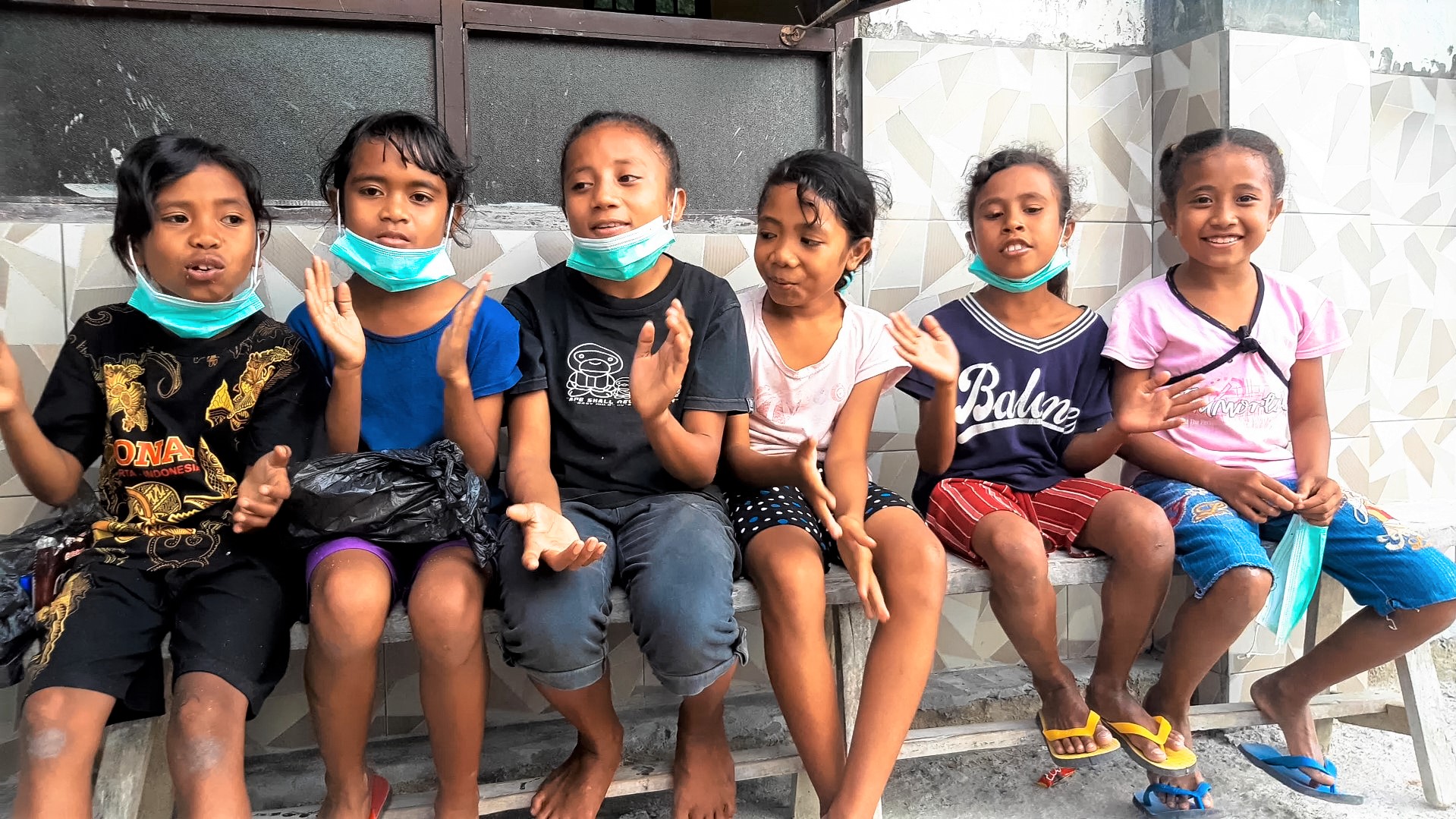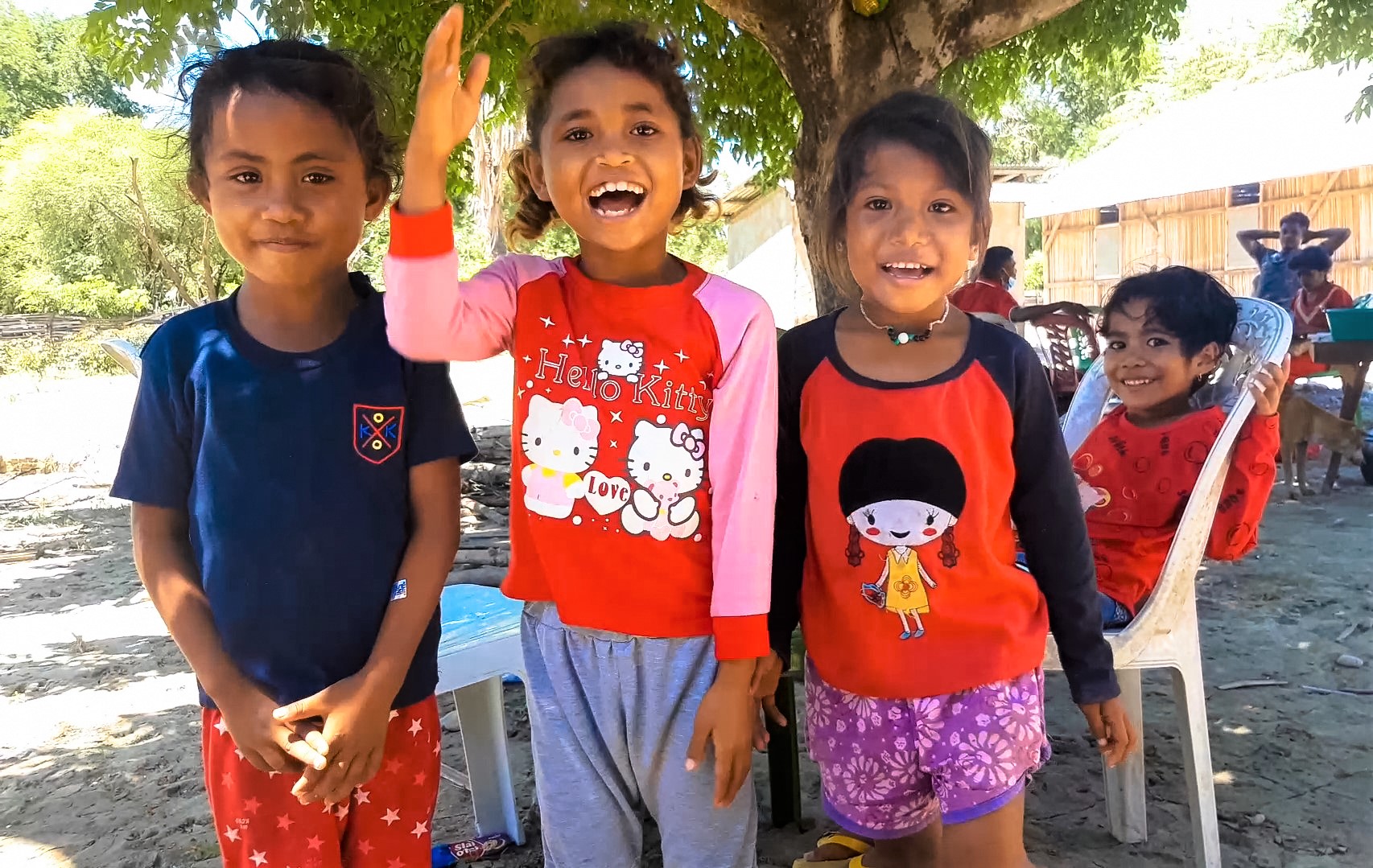Helping Children Cope with Post-Disaster Trauma

Flash flood that hit Bena Village in Toninu, South Amanuban District, South Central Timor Regency, East Nusa Tenggara Province caused both material and non-material losses. The trauma experienced by children was just one instance among many of the non-material losses.
Some of the disaster victims affected by the aftermath of the flash flood in Bena Village were children. They were still traumatized, which resulted in their unstable mental and psychological condition. The trauma could not be allowed to drag on any longer because it would adversely affect their lives.
Similar to what happened in other areas, Bena Village was struck by flash flood due to the overflow of the Noelmina River water. The flash flood which lasted for several hours immediately swept away various residential buildings, agricultural land, and residents' plantations. Suddenly people scattered running to higher ground. However, modestly a few mothers and children survived on the roof of their house and started screaming hysterically for help.
“When the flood came, it happened very quickly. It felt like it had only been a few moments when the river water had overflowed to about an adult's chest level,” Epafrodintus Liunese, Secretary of Bena Village, said.


Members of TIMA medical team were comforting the displaced children at the Bethel Toinunu Congregational Church, Bena. In addition, Tzu Chi also opened a health post for refugees of the Bethel Toinunu Congregational Church. Some of the diseases that were often reported in the refugee camp following the flood disaster include upper respiratory tract infections, itching, and minor injuries.
The flash flood left both physical and psychological trauma, for example the feeling of fear in children. Houses where they grew up and thrived were badly damaged and some of them were swept away by the flood. The school where they studied and played also collapsed and some of them were swamped with mud after the flood. Since then, the children were forced to adapt to the new environment in the refugee camp.
According to Epafrodintus’ story, the children who were living in the refugee church were still afraid of the aftermath of the flash flood. "Whenever they hear a rumbling sound or heavy rain, they just wake up from their slumber."
Moreover, the refugee camp was not a vacation arena and it might not be child-friendly. In case of emergency, the children even had to accept and experience an atmosphere of uncertainty. Surviving the flash flood and living in a refugee camp left them with unpleasant experiences and memories. Under these circumstances, the children needed assistance to deal with traumatic injuries caused by the flash flood.


The displaced children in Bena Village were singing with the Tzu Chi medical team, one act of the team’s efforts to help children cope with trauma which required a continuous process.
From that point, Tzu Chi International Medical Association (TIMA) Indonesia members collaborated with Tzu Chi volunteers to provide support and assistance to children as a form of disaster response to minimize the effects of psychological disorders experienced by disaster victims. They also provided psychological counseling with play-therapy and self-motivation based on educational content.
The activities carried out by TIMA members were one of the team’s efforts to help children cope with post-flood trauma as a requirement for a continuous process of efforts. The approach is act by playing, singing, dancing, and telling stories with the children in the refugee camp.
Disaster events such as flash floods or earthquakes can be part of learning about each other’s preparation to deal with the natural phenomenon because sometimes aids are not only in the form of medical and logistical assistance. "Post-traumatic treatment of children is also very important," Zr. Weni Yunita, a member of TIMA Indonesia who opened a health service post in Bena Village, said.

A group of children were taking shelter under the tent donated by Tzu Chi in Takari Village, Kupang Regency. They had to adapt to their environment in the refugee camp.
While providing treatment to the displaced residents, TIMA members also collaborated with Tzu Chi volunteers to entertain children by singing together and providing healthy food specially prepared for the displaced children in Bena Village. "Children also need entertainment while living in refugee camp," dr. Dharma, a member of TIMA Indonesia, said.
The term related to entertainment does not mean the children can play as they please. They can also enjoy the process of learning about the stories behind disasters such as how flash floods occur. Trauma treatment is a way to restore both children’s mental and physical conditions to normal conditions. They can return to their activities in a fear-free atmosphere and are ready to be able to learn from the events that occur.
Journalist and Photographer: Anand Yahya
Translated by: Vincent Salimputra (Tzu Chi Volunteers)








 Sitemap
Sitemap